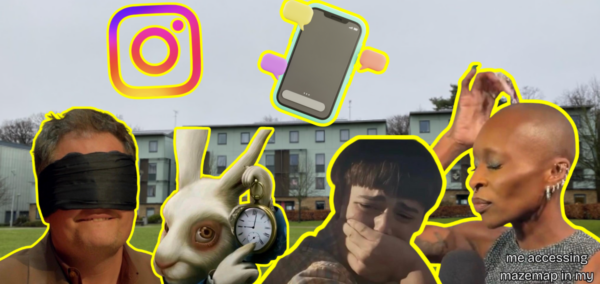
Yikes! New study finds app we all use is ‘fuelling unwanted pregnancies’ in young people
TikTok is great for recipes, not birth control
TikTok has basically become everyone’s doctor, but a new study says that its contraception advice could actually be causing more unwanted pregnancies.
Researchers in Australia analysed 100 TikToks about contraception, which together had nearly five billion views. More than half of creators (53 per cent) rejected hormonal contraception, while over a third (34 per cent) said they don’t trust doctors.
Instead, loads of influencers are pushing “natural” contraception methods like cycle tracking and fertility awareness, without pointing out how unreliable they are.
Basically, unless you’re a human calendar with psychic powers and a very cooperative partner, they don’t really work.

Credit: Canva
Dr Caroline de Moel-Mandel, who led the study, said: “Many TikTok creators promoted natural contraceptive methods like fertility tracking without disclosing their limitations. Importantly, they failed to mention these methods are generally ineffective when used on their own.
“This kind of misinformation, combined with a growing distrust in healthcare professionals, can result in unsafe decisions and ultimately, unplanned pregnancies.”
Most of the people giving advice aren’t even health professionals. Only 10 per cent of the videos came from actual medical experts. The rest were influencers sharing their experiences or so-called “hormonal health coaches” with big followings. And because TikTok’s algorithm loves chaos, they often get a bigger platform than doctors.
Megan Bugden, co-author of the study, said: “Social media is reshaping healthcare providers’ relationships with patients. We encourage health professionals to rebuild trust through shared decision-making on contraceptive options, which may increase patient satisfaction and mitigate unreliable information posted online.”
Most Read
She added: “Young people deserve accurate information to make informed contraceptive health decisions, regardless of background or resources. Public health organisations should collaborate with social influencers to promote safe and effective contraceptive information through messages that resonate with younger audiences.”
If you’re thinking about changing your contraception or trying out natural methods, speak to a GP or a sexual health nurse before you bin your pill packet.
TikTok can be fun for recipes, outfit inspo and memes, but it’s not a replacement for actual medical advice.
Most unis have sexual health clinics on campus, and you can also book appointments at local NHS clinics for free. And if you’re genuinely curious about fertility tracking, a doctor can explain how it works alongside other, more reliable methods.
Moral of the story: trust the professionals, not someone with a ring light and five billion views.
For more like this, like The Tab on Facebook.
Featured image credit: Unsplash/Reproductive health supplies coalition



















